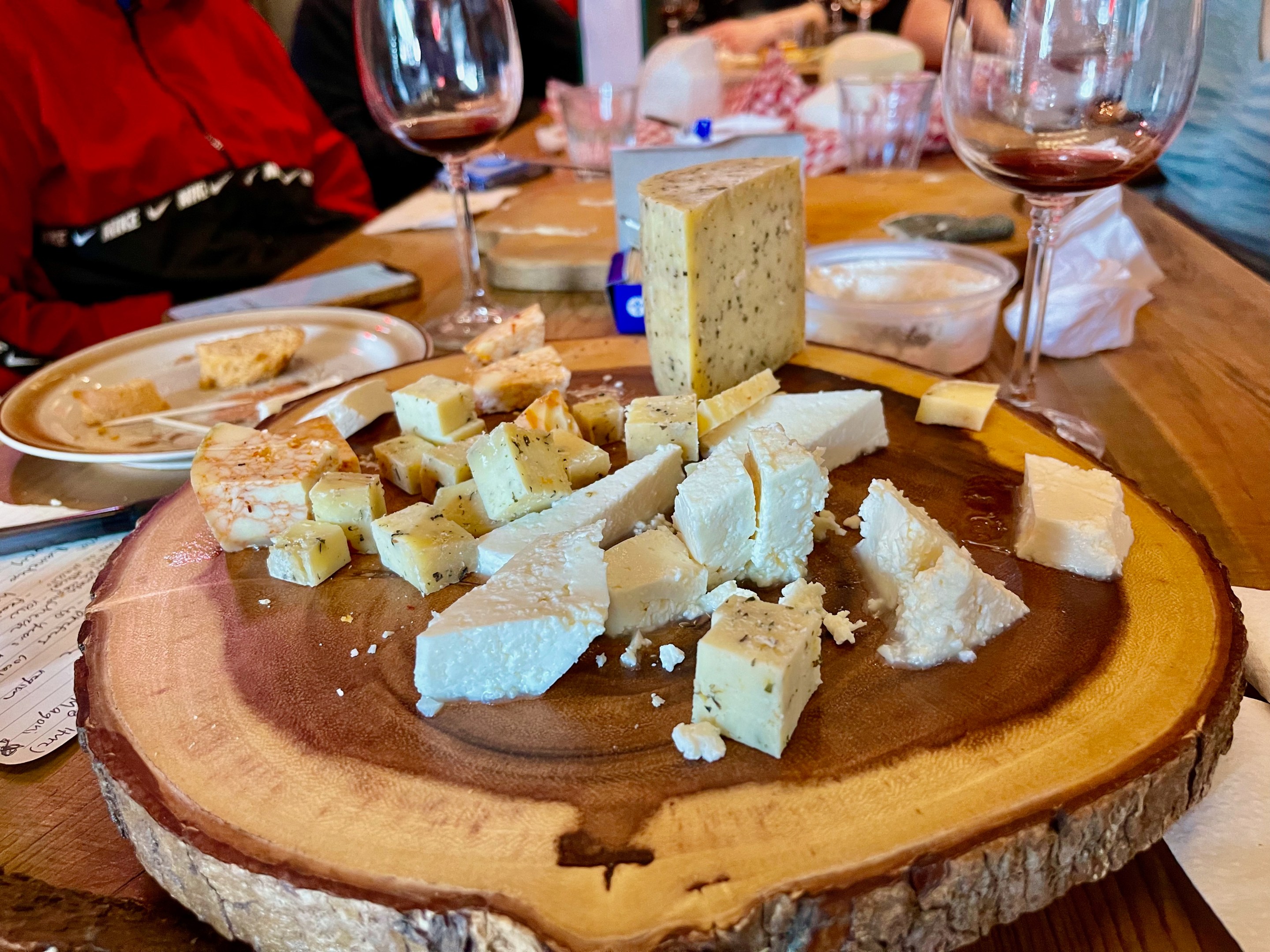Great cheeses do not only come from Europe.
Latinos in Los Angeles have always known this. Some of the earliest memories a lot of us have involve suitcases full of potent, stinky cheese brought in from our parents' home countries. All are made with raw milk, which is strangely illegal in the United States.
There are ways around this weird law, like trekking two hours south to in Tijuana to experience an equally delectable dairy culture with its own remarkable history.
Mexican cheese can be eaten for any meal of the day, from garnishing dishes to quesadillas to being served as-is—sliced as a snack. A deli just a few miles away from the Tijuana border offers at least a half dozen varieties of local, Baja-crafted cheeses made with raw milk.
Forty-three-year-old Humberto Manuel Cuevas Acosta, the owner of La Bodega de Popo Quesos, and Deli, says locals will more often than not still buy generic cheese from the supermarket, despite the region's abundance of expertly-made cheeses.
“I think many people don’t know [that] good, locally made cheese exists here in Tijuana," he says. "They go to the supermarket automatically, and they buy the commercial ones."
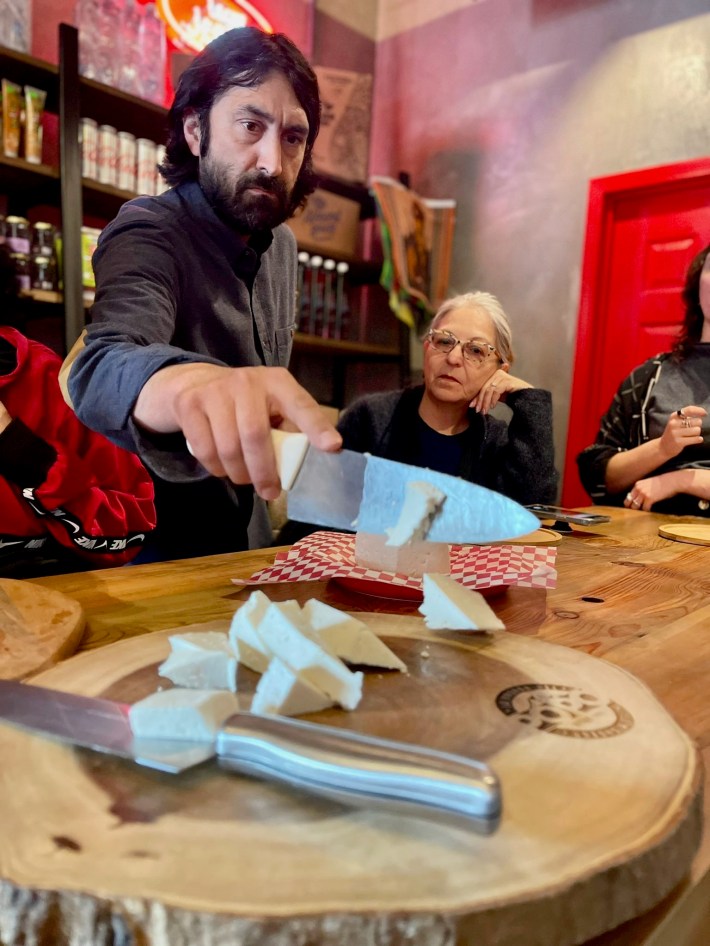
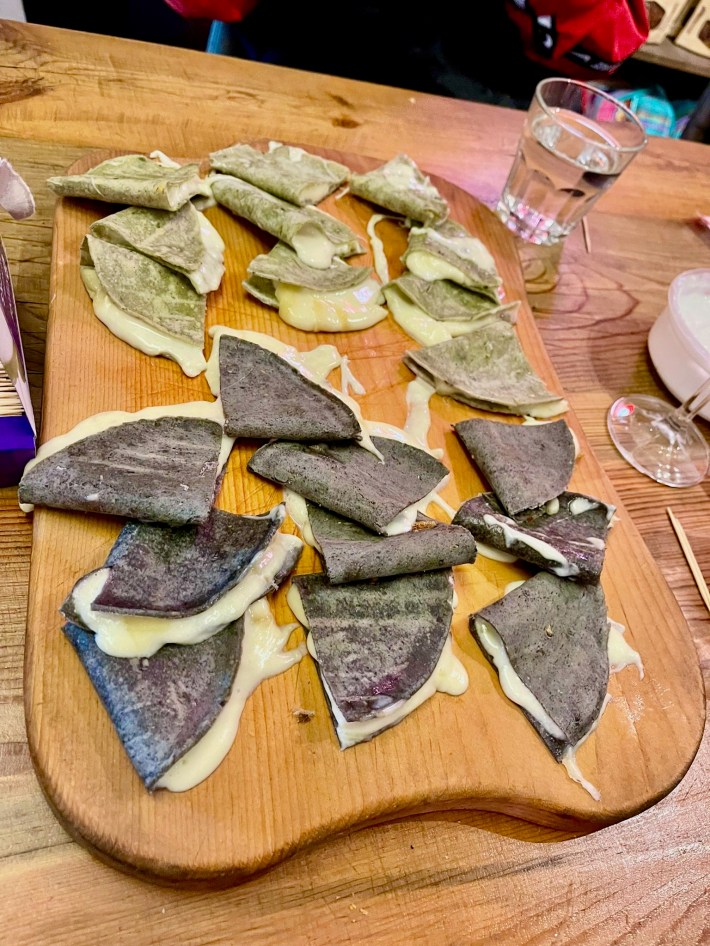
Acosta has been selling cheeses since he was a kid, thanks to his early experiences working at his father's cheese shop in Tijuana's original Mercado "El Popo" in el Centro, which is still open to this day.
The secret to Tijuana's amazing cheese culture? Raw milk. It creates a bold and unique cheese-tasting experience. But why is it illegal?
The Food and Drug Administration says raw milk is dangerous because it can include harmful germs like salmonella. However, according to a study conducted in Texas, consumers were more likely to get sick from foods like raw oysters and turkey.
There had only been a total of two contracted illnesses attributed to raw milk in the state of Texas over the study's duration, and more illnesses have been linked to common foods like strawberries and chicken soup in the state.
What is the difference between raw milk and pasteurized milk? To remove potentially harmful bacteria, pasteurized milk is heated up to a temperature that kills them. This practice also alters the original taste and overall texture of dairy products.
Cheese made with raw milk has undergone the most minor changes from its natural state. Also, unlike commercial cheese produced by corporations, the raw milk cheese sold in Mexico is usually made by local, family-owned producers who have been making cheese for many generations. Acosta says the care that goes into the animals, such as the food they are fed and the quality of life they live, also affects the milk they produce.
For those interested in bringing back Mexican cheeses to the U.S., you're mostly good to go, as cheese is clearly in the U.S. Customs and Border Protection list of "generally admissible items." However, make sure to always do your own research before you go since the list is always changing.
For Acosta, it all started when his great-uncles moved from Sonora to Tijuana in the 1920s and they came to work on La Presa de Tijuana, the Tijuana dam. The family eventually opened up a downtown carniceria.
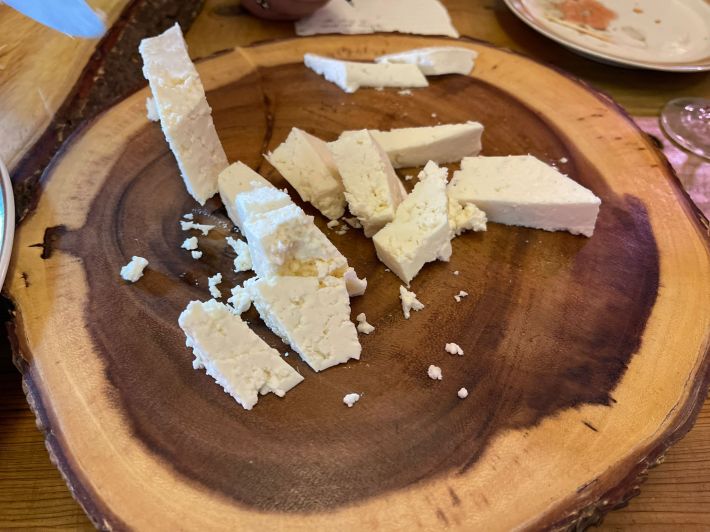
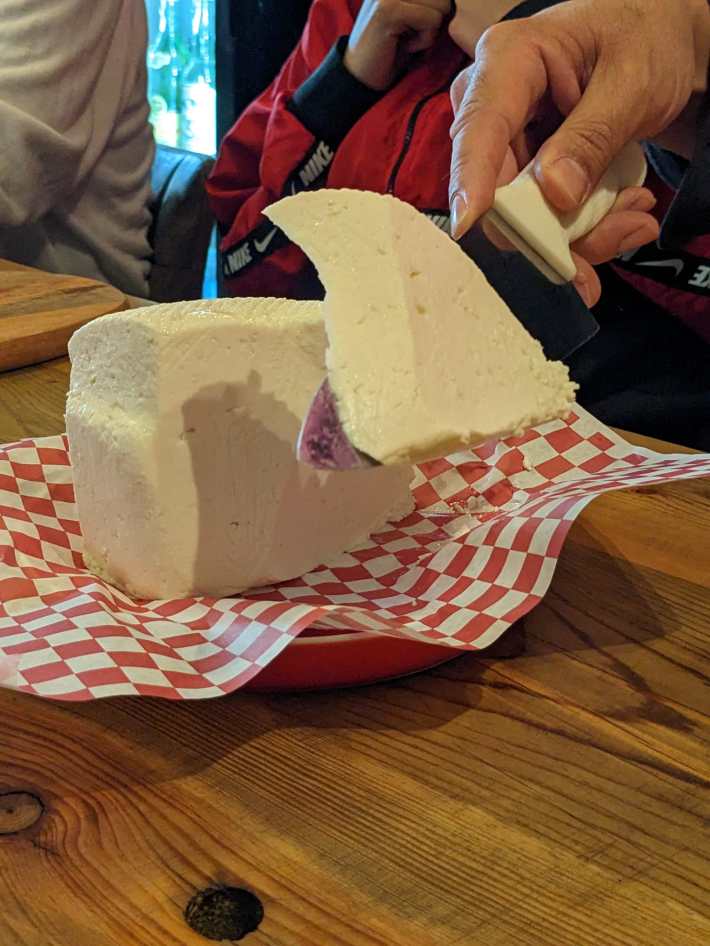
The shop quickly expanded to sell other goods like cheeses. In 1933, they opened El Popo Market, what is today considered the first market in Tijuana. Sourcing local goods to sell has always been an Acosta family priority.
For the past 40 years, El Popo has been sourcing its cheeses from the same family. Raul Viera, who sells cheese to Acosta today, took over from his father, who made and sold the cheese before him.
“My dad had the fortune to meet the guy in the market almost forty years ago," he says. "And to this day, this person makes cheese every day.”
Loyalty is a very respected quality in Mexico's business etiquette, especially if the person you are doing business with is also from the same underrated city as you, such as Tijuana. Even though the city has ballooned to over 2.2 million residents, it somehow still feels like everyone who was raised there knows each other.
This tight-knit feel may coincide with Tijuana's relatively new establishment as a city; it was incorporated as a city only in 1889. Acosta says he is the first actual generation since Tijuana's population boom that started in the 1950s when Mexicans from other regions of the country began to emigrate to the young city to start their own businesses in the promising new city.
The city's economic success with its little-known local cheese sector is largely thanks to the cheesemakers' support of one another. Rather than gate-keep connections and discoveries, vendors will always help guide each other, maintaining an immense sense of community.
The Ramonetti family arrived in Ensenada from Switzerland in 1912, Acosta tells us. The family changed Baja's cheese culture forever. They're also the reason why some Swiss tourists tend to say Baja's cheeses are very similar to the types of cheese you find in Switzerland.
This may also explain why the cotija cheese we sampled tasted vastly different from the varieties found at the butcher case in U.S. Mexican supermarkets. The corporatization of Mexican cheese also impacts the ability of these Baja producers to reach the United States and demonstrate for themselves to a U.S. audience how nuanced the Mexican dairy experience can be.
As we sat in El Popo, Acosta placed a variety of cheeses native to the Baja area at the long table we were sitting at. We first started with the softer cheeses, which are especially popular in Mexico.
To begin, we had Acosta’s personal favorite: panela, which is popular, especially for quesadillas. We consumed the cheese first on its own and then melted it inside a panini maker Acosta used to make quesadillas.
“I call this cheese the hidden treasure of Tijuana,” Acosta says.
If you have been searching for the perfect cheese pull, panela is for you. Paired with a blue corn tortilla instead of bread, every flavor elevated each other in a way that showed just how many dimensions a simple tortilla can have.
Following the panel, we had a series of other soft cheeses, all from the Baja region. These included queso fresco, queso ranchero fresco, and ricotta Ramonetti.
The Ramonetti family arrived in Ensenada from Switzerland in 1912, Acosta tells us. The family changed Baja's cheese culture forever. They're also the reason why some Swiss tourists tend to say Baja's cheeses are very similar to the types of cheese you find in Switzerland.
The Ramonetti family still has a presence in Ensenada at their family restaurant, La Casa de Marcelo, where they offer a family reserve of supremely pungent, aged cheeses, some aged up to four years. The family also has their own cheese and wine cave in the wine country of Valle de Guadalupe, La Cava de Marcelo.
As the table passed around platters of cheese and bread, I realized how many different textures there are among the soft cheeses. Especially the queso fresco, which had the most satisfying crumble beneath one's fingertips.
We then had crema de rancho and a jocoque reminiscent of labneh, which was made by a Lebanese Mexican woman, both thick and refreshingly acidic.
These were followed by Baja's most famous hard cheese: Real del Castillo. Acosta had a Real de Castillo that was flavored with chipotle and locally grown olives.
Acosta doesn’t even know how many different local merchants he has worked with because he has accumulated so many throughout the years. When elaborating on his relationship with each, it's obvious they feel more like partnerships and friendships than simple business relationships.
La Bodega Del Popo is at Av. Colima 275, Col. Madero (Cacho), 22040 Tijuana, B.C., Mexico
This story is part of TIJUANA WEEK at L.A. TACO! A collaboration with Professors Amara Aguilar, Laura Castañeda, and USC Annenberg School for Communication and Journalism. Make sure to check back daily for more stories. A printable L.A. TACO Pocket Travel Guide to Tijuana will drop later this week so keep an eye out for that soon.
